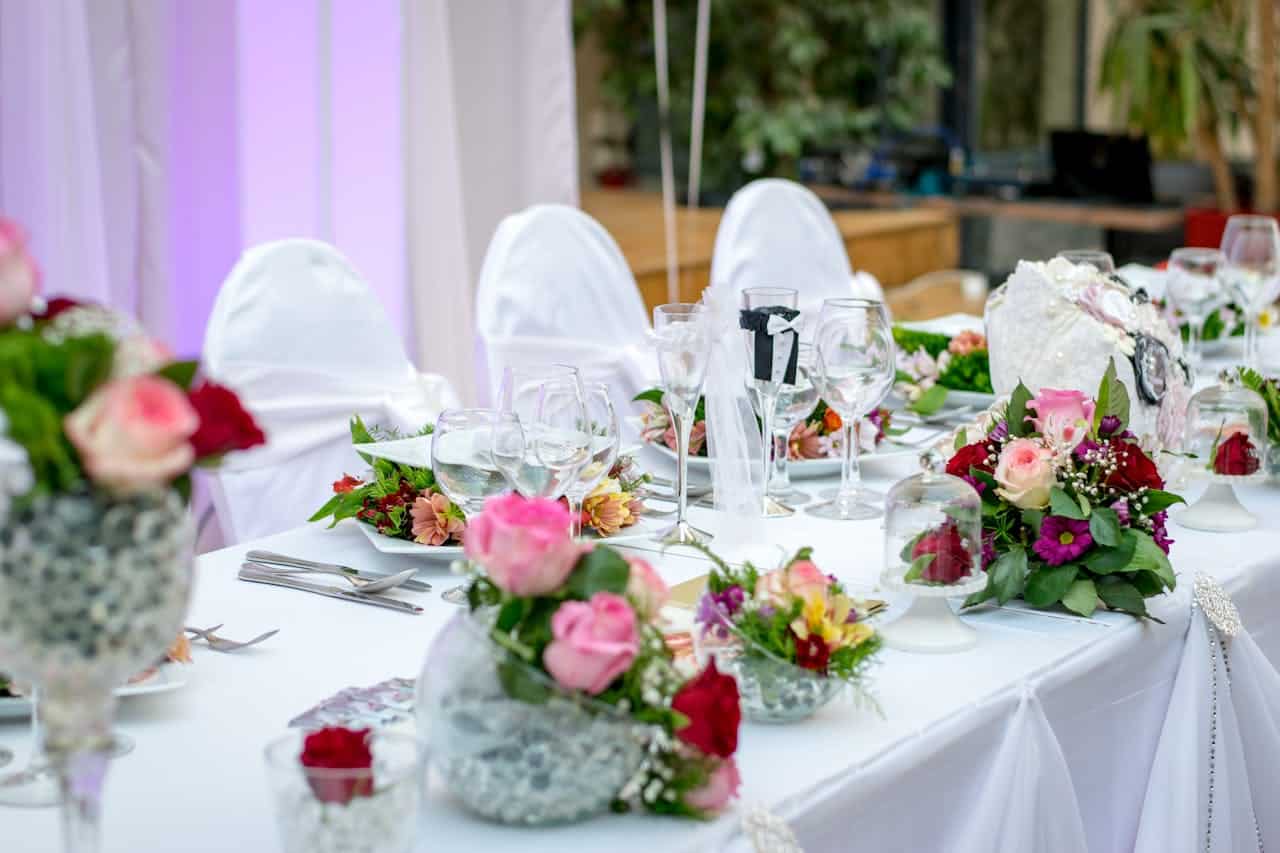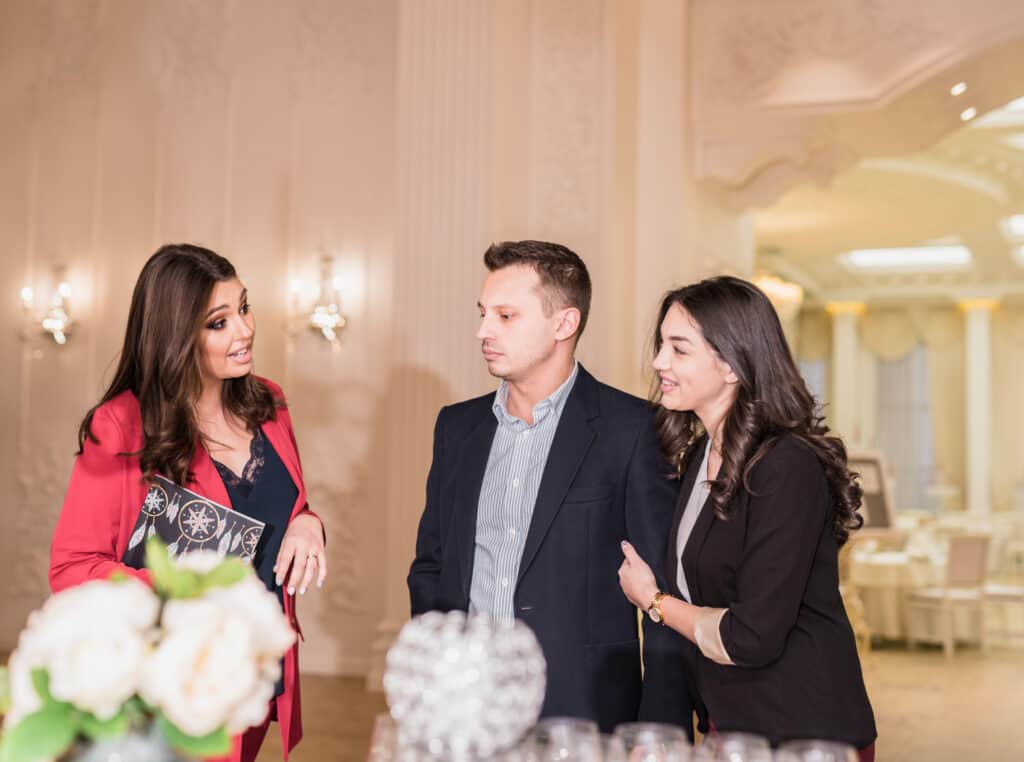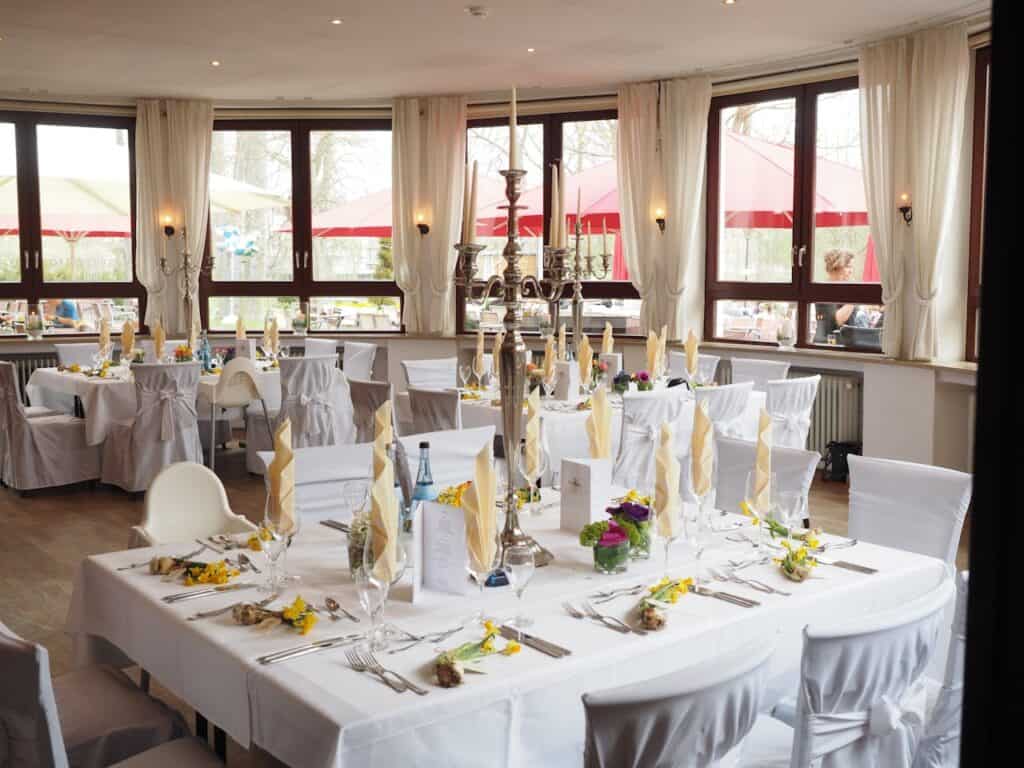
By Jermaine Thomas March 27, 2025
One of the most crucial aspects of event planning that guests will remember is the food. Catering is essential to establishing the mood and elevating the experience, whether it’s a high-profile business event or an extravagant wedding. Although professional catering services are necessary for both kinds of events, wedding catering and corporate event catering differ greatly in terms of approach, expectations, and difficulties.
Understanding the Basics of Wedding Catering
Wedding catering goes beyond just feeding guests—it’s about creating a personal and immersive experience that complements the couple’s special day. From traditional family recipes to themed menus, every element is thoughtfully planned. The goal is to leave guests with lasting impressions of both flavor and presentation, making it one of the most emotionally significant parts of the celebration.
Wedding Catering: Personal Touches
Weddings are deeply emotional occasions, and guests expect the food to be just as memorable as the vows. The menu often includes elaborate meals, fusion dishes, and signature cocktails. Guests also expect multiple courses—appetizers, main course, desserts, and sometimes midnight snacks. Presentation is key. From personalized menus to unique food stations, wedding catering is all about impressing and indulging.
What Sets Corporate Event Catering Apart
The foundation of corporate event catering is professionalism, usefulness, and brand image. High-quality food is necessary, but the main emphasis is on advancing the event’s goal, be it business strategy, team building, or networking. Emotional storytelling through cuisine becomes much less significant than efficiency, timing, and streamlined service.
Corporate Event Catering: Simplicity and Efficiency
In contrast, guests at corporate events value practicality. For breakfast meetings, boxed meals or buffet-style service works best. For networking sessions, finger foods and hors d’oeuvres are ideal. The focus is on convenience and minimal disruption. Event food planning here centers around dietary diversity, punctual service, and offering enough choices without overwhelming guests. It’s also important to ensure minimal mess, especially if attendees are handling paperwork, laptops, or presentations.

Guest Expectations and Menu Planning
When comparing wedding catering and corporate event catering, the menu plays a major role in setting the tone. One emphasizes emotional experiences and indulgence, while the other prioritizes accessibility and ease of consumption. Understanding guest expectations is essential for successful event food planning in either setting.
Wedding Catering: Personal Touches
As weddings are intensely emotional events, guests expect that the food will be as memorable as the vows. Intricate meals, fusion cuisine, and specialty cocktails are often offered on the menu. Appetizers, the main course, desserts, and occasionally midnight snacks are among the many courses that guests expect. It’s all about presentation. Impressing and indulging are the main goals of wedding catering, which includes customized menus and distinctive food stations.
Corporate Event Catering: Simplicity and Efficiency
In contrast, guests at corporate events value practicality. For breakfast meetings, boxed meals or buffet-style service works best. For networking sessions, finger foods and hors d’oeuvres are ideal. The focus is on convenience and minimal disruption. Event food planning here centers around dietary diversity, punctual service, and offering enough choices without overwhelming guests. It’s also important to ensure minimal mess, especially if attendees are handling paperwork, laptops, or presentations.
Event Duration and Scheduling Differences
The timing and length of an event significantly impact how catering services are planned and executed. While weddings often allow for a leisurely, indulgent timeline, corporate events are usually tied to tight schedules that demand punctuality and efficiency.
Weddings: Flexible and Extended Timelines
Caterers must be available for extended periods of time and possibly oversee multiple meal services because weddings often last for several hours, sometimes the entire day. Wedding festivities can last for several days in some cultures, which makes the catering arrangement more difficult.
Corporate Events: Strict and Structured Schedules
Corporate events, however, usually have tighter timelines. A lunch-and-learn may last an hour, while a day-long seminar might include only two meal breaks. The service must be streamlined and prompt, as delays could disrupt the event’s agenda. Professional catering services that specialize in corporate events are adept at working with strict schedules and serving large groups efficiently.
Budgeting and Cost Considerations
Budget is always a factor in event planning, but the way it’s approached can differ significantly between weddings and corporate events. While one may lean into emotions and splurging, the other often adheres to a financial plan with ROI in mind.
Weddings: Emotion Over Economics
Particularly when food is viewed as a key component of the celebration, wedding budgets often stretch to cover all the extras. To provide their guests with an unforgettable culinary experience, couples might be prepared to pay more per plate. Plated service, specialty drinks, gourmet selections, and elaborate food displays are all included in this.
Corporate Events: ROI and Cost-Effectiveness
Corporate clients, by contrast, are typically more cost-conscious. They aim for a clear return on investment. Spending must be justified, especially if the event is funded by a specific department or sponsor. As a result, corporate event catering must balance quality with budget efficiency. This may involve choosing simpler menu items, reducing food waste, or opting for drop-off service rather than full-service catering.
Challenges in Logistics and Setup
Logistical planning is crucial for both weddings and corporate events, but the nature of the event often dictates the level of complexity. From venue constraints to food transport, each setting presents unique hurdles for professional catering services.
Weddings: Diverse Venues, More Setup
Large banquet halls, private estates, remote farms, and outdoor gardens are just a few of the places where wedding catering often occurs. This creates logistical problems like a lack of kitchen space, an unstable power supply, or unpredictable weather. Caterers need to carefully consider timing, setup, and equipment transportation.
Corporate Events: Predictable Yet Rigid
Corporate events tend to happen in predictable venues such as offices, hotels, or conference centers. These spaces are often equipped with basic facilities and easier access for caterers. However, the challenge lies in managing food service without interrupting the professional tone of the event. Whether serving 20 or 200 employees, precision in delivery, setup, and cleanup is essential.
Coordination and Vendor Collaboration
Effective coordination is key to any event, but the number of stakeholders involved can change the dynamic. Weddings often involve multiple creative vendors, while corporate events usually focus on operational execution.
Weddings: Multiple Stakeholders
Wedding catering requires seamless collaboration with multiple vendors: wedding planners, florists, DJs, decorators, photographers, and venue managers. Timing is everything—from when the appetizers should be served to the exact moment the champagne is poured for the toast. Coordination is critical to maintain the flow of the event.
Corporate Events: Streamlined Communication
The communication process is typically simpler when it comes to corporate event catering. There is typically only one event manager or point of contact for caterers. This makes it simpler to manage expectations, finalize details, and deliver on schedule. Caterers must be extremely efficient and on time because business events often have tight timelines. During breaks or networking sessions, they may have to serve hundreds of guests in a few minutes.
Customization vs. Standardization
How much flexibility a caterer offers in menu and presentation depends heavily on the type of event. Weddings usually call for creativity and personalization, while corporate clients prioritize consistency and efficiency.
Weddings: Highly Personalized
Wedding catering is highly customized. Every couple has a different vision, dietary preferences, and aesthetic expectations. Menus are curated after tastings, and even the smallest details like napkin colors or garnishes may be discussed at length. The goal is to create a unique, once-in-a-lifetime experience.
Corporate Events: Standardized and Scalable
Corporate event catering, on the other hand, leans towards standardization. Most businesses prefer working with professional catering services that offer a consistent quality of food and service. While customization is still possible, it’s usually minimal—focused more on accommodating allergies or dietary restrictions rather than thematic presentation.
Staffing and Service Styles
The type, size, and formality of the event determine how many staff and what kind of service are needed. While corporate events benefit from streamlined staffing, weddings typically call for more elaborate service styles.
Weddings: Full-Service Approach
Wedding catering may require full-service teams including servers, bartenders, chefs on site, and sometimes even themed entertainers or uniformed staff for a cohesive visual. The service style may vary between sit-down dinners, family-style service, or interactive food stations.
Corporate Events: Lean and Functional
For corporate events, the staff is typically leaner. Buffet-style service or self-serve stations are more common, especially during conferences or expos. Full-service may only be used for VIP gatherings or executive luncheons. The goal is to provide quick and professional service without becoming the center of attention.

Measuring Success
The way success is measured in each type of catering job is distinct. Weddings focus on guest happiness and emotional moments, while corporate events value efficiency and smooth operations.
Weddings: Emotional Impact
Emotional feedback—guests praising the food, the couple feeling that their expectations were surpassed, and the general feeling that the meal added magic to the day—is often used to gauge the success of wedding catering. Taste, presentation, and guest satisfaction are all very important.
Corporate Events: Professional Impressions
For corporate event catering, success is gauged by professionalism, punctuality, and the lack of disruptions. Positive feedback from attendees, minimal complaints, and the ability to meet dietary needs smoothly are all signs of a well-executed catering job. The focus is on supporting the business goals of the event.
The Role of Professional Catering Services
Whether it’s a wedding or a corporate event, the experience level of the catering team can make or break the day. Professional catering services bring structure, quality, and peace of mind—especially when the stakes are high. Their experience across different event types helps anticipate challenges and offer tailored solutions.
Choosing the Right Catering Approach
Corporate events and weddings both rely significantly on food to set the mood, but they have very different catering requirements. Because wedding catering is so intimate, sentimental, and joyous, it necessitates a great deal of personalization and guest participation. Practicality, professionalism, and timing are key when it comes to corporate event catering—serving food in a way that complements the event’s goal without taking away from it.
By understanding these differences and anticipating the challenges unique to each type of event, hosts and planners can work with professional catering services to ensure a smooth, enjoyable, and memorable food experience. Whether you’re planning your dream wedding or organizing a major business conference, thoughtful event food planning makes all the difference.